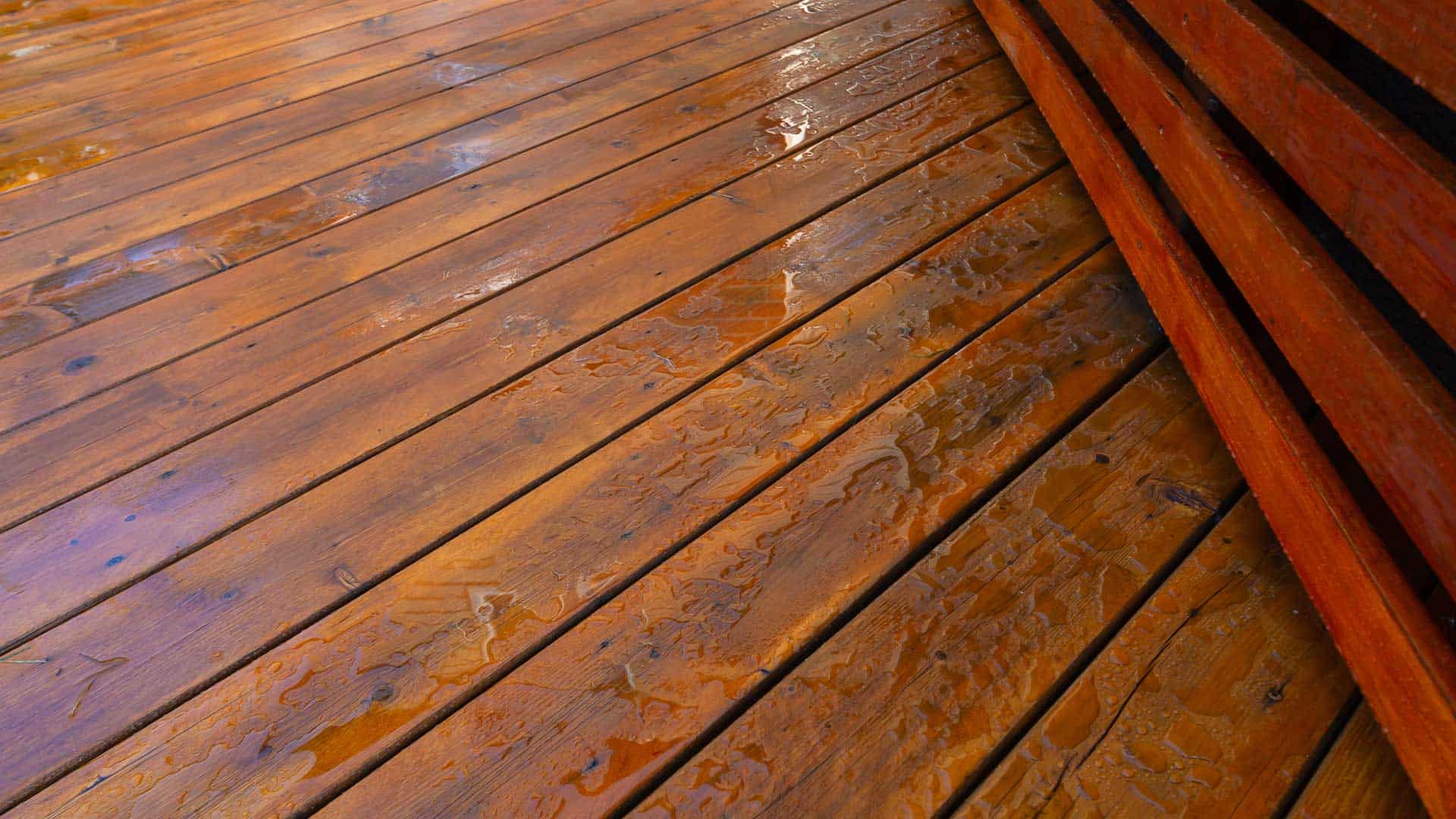Deck stains – Oil based or water based?

Your backyard deck is the ideal place for outdoor enjoyment, whether you’re looking to unwind on your own with a nice book and a refreshing drink or you’re planning a get-together with your loved ones and friends for a more relaxed occasion. The question of whether to use oil based or water based stains on your deck is a common one. Both types of deck stains have their advantages and disadvantages, so it’s important that you know what they are before making your decision.
Oil based deck stains have been around for 20-30 years and were very popular in the 90s and early 2000s.
Today, they’re still an excellent choice if you want your deck to stand up to weather and wear. Oil based deck stains require more maintenance than water based finishes because they don’t wash off easily with rain (which can lead to mold growth). They also need to be sealed with a topcoat after installation, which makes them more expensive than their water-based counterparts—but this is another reason why people like them! Oil-based decks tend to not only look better but also stay cleaner longer because there’s no need for weekly cleaning like there is with water based products.
Many people complain that the oil based deck stains are difficult to work with and require more maintenance.
The oil-based stains can be more difficult to apply, which may lead to a lower quality finish on your deck. Additionally, they tend to peel or chip more easily than water-based stains.
For this reason, it’s important that you use a quality product when applying an oil-base stain to your wood surface so that it doesn’t leave behind any residue after application (which will have an effect on how long the color lasts).

The classic oil based deck stains like Sikkens Cetol 23 and Cetol SRD do require more maintenance, but less maintenance than standard solid color stains.
It is more durable and can be applied in a variety of colors and textures. Oil-based stain will last longer than water based stain on most surfaces, but if you want to use a water based product for an extra special look or for an all weather application, then this is the option for you.
On the other hand, if your main concern is having an easy to apply product with minimal effort required, then using solid color stains may be more suitable for use on your decking project as long as it’s not too humid out, where humidity levels may cause the paint to warp or become cloudy within 48 hours after application (which could lead to unsightly discoloration). For protecting your timber decking, outdoor furniture, and roof shingles, you can count on our Sikkens Cetol HLSe.
Most water based stains can be applied to damp wood and only require one coat.
Water-based stains can be applied to damp wood and only require one coat. If you’re looking for an easy way to stain your deck, water-based is a solid choice. If you want something that will last longer, oil-based stains are better suited for the job. Oil-based stains are more durable than their water counterpart because they don’t get affected by moisture in the air like water does. However, they may require two or three coats depending on how much coverage you want on your deck surface (more is always better).
Penetrol wood oil
If you need to coat your furniture with a durable finish, you might want to try Penetrol wood oil. It is a premium product that has been on the market for over two decades and offers many benefits to the owner. The product is highly durable and will protect the wood against discoloration, warping, shrinking, and cracking. It has been tested and has been shown to be resistant to all types of environmental factors, including humidity, temperature changes, sunlight and even water. It also makes a great finish as it can be applied by hand or machine. The product is also non-toxic so you won’t have any problems with your children or pets coming into contact with it.
Choosing a deck stain can be an easy decision if you have the right information and know what to look for. If you want to win the battle against water damage, then it’s best if you go with water-based stains!
 (07) 3268 7161
(07) 3268 7161
 View Cart
View Cart
 Australian Owned
Australian Owned Fast dispatch
Fast dispatch 30 Day Return Policy
30 Day Return Policy Industry Leading Support
Industry Leading Support


